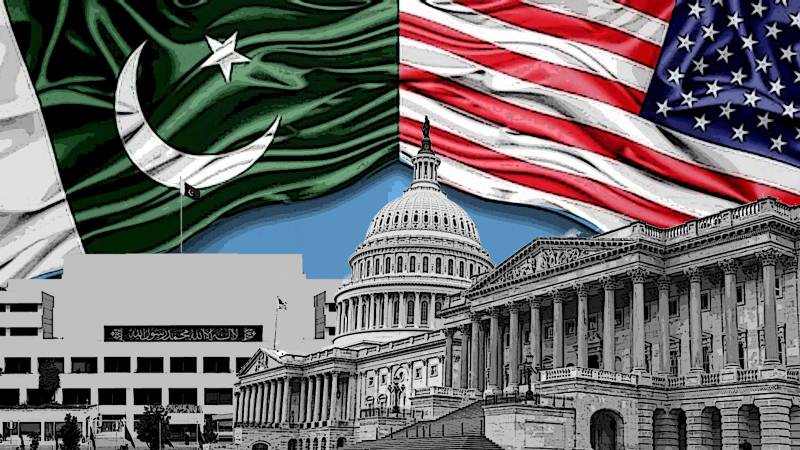
In a recent letter to U.S. Secretary of State Antony Blinken, 11 progressive Democrats from the U.S. House of Representatives raised profound concerns about escalating human rights abuses in Pakistan. The letter, led by Representatives Ilhan Omar (D-MN) and Greg Casar (D-TX), comes at a time of widespread political unrest in Pakistan, marked by a crackdown on political opposition, human rights defenders, and Afghan refugees facing expulsion.
The lawmakers request the U.S. State Department to assess whether Pakistani forces, the U.S. is providing security assistance to, violate human rights. And withhold future assistance “until Pakistan has moved decisively toward the restoration of Constitutional order, including by holding free and fair elections in which all parties are able to participate freely.”
The letter begs the question: didn’t security aid to Pakistan stop?
Indeed, most security assistance programs to Pakistan were suspended under the Trump administration in 2018 - an estimated cost of $900 million. But some remain active. Pakistan still receives upwards of $20 million in security assistance between the Nonproliferation, Anti-Terrorism, Demining, and Related Programs (NADR) account, International Narcotics Control and Law Enforcement (INCLE) account, and the International Military Education and Training (IMET) program. INCLE and NADR were not suspended under the Trump administration; IMET was reinstated in 2021. In 2019, Pakistan received $42 million and in 2021, $30 million.
On November 20, three days after the letter, the U.S. Ambassador to Pakistan, Donald Blome, announced an $8 million security assistance package and a $250,000 equipment grant.
While the current US-Pakistan relationship is murky, the two enjoy a historical alliance, ongoing defense, trade, culture, and education ties. The lawmakers note Pakistan’s “crucial role in regional stability and counterterrorism.” But this request to assess security assistance may cause an additional strain. The Biden administration could also be in breach of U.S. laws.
First, the “Leahy law,” which prohibits funding to specific units or individuals of foreign security forces where there is credible information implicating that unit in the commission of gross violations of human rights. Second, Section 502B of the Foreign Assistance Act, which prohibits security assistance to countries where the government consistently commits “gross violations of internationally recognized human rights.” This includes “…torture or cruel, inhuman, or degrading treatment or punishment, prolonged detention without charges and trial, causing the disappearance of persons by the abduction and clandestine detention of those persons, and other flagrant denial of the right to life, liberty, or the security of person.”
NADR, INCLE, and IMET are all subject to the Leahy law and 502B. The assessment the lawmakers demand is critical because the U.S. government is not allowed to provide support to units or individuals that violate human rights.
In 2019, five Pakistani units and an individual failed Leahy vetting by the State Department. Thus, were barred from receiving assistance. The ban is permanent unless “effective steps” are taken towards remediation.
Domestic and international rights groups, as well the U.S. have long documented torture by police, poor prison conditions that amount to cruel, inhuman, or degrading treatment and may meet the threshold for torture, cases of extrajudicial executions, and arbitrary arrests and detention.
Crackdowns against civil society and political opposition in Pakistan remain unabated. The interim government’s October 3rd decision to expel over 1 million Afghan refugees, a violation of international law, saw increased police violence against the marginalized population. In a November 15 statement, United Nations High Commissioner for Human Rights Volker Turk said he was “alarmed” by the abuse.
$20 million in U.S. security assistance is nowhere near what Pakistan received previously, but it should not be counted out. Accountability should take place, especially when there are consistent credible reports.
Pakistan should take this opportunity to address human rights concerns to abide by its human rights obligations. Likewise, to prevent unnecessary strain with the U.S. The lawmakers “believe that the [U.S] can play a constructive role…and it is [their] hope…that cooperation can contribute to a more just and equitable future for the people of Pakistan.” Pakistan must also consider the negative impact prohibition of assistance would have on its institutions and personnel.

